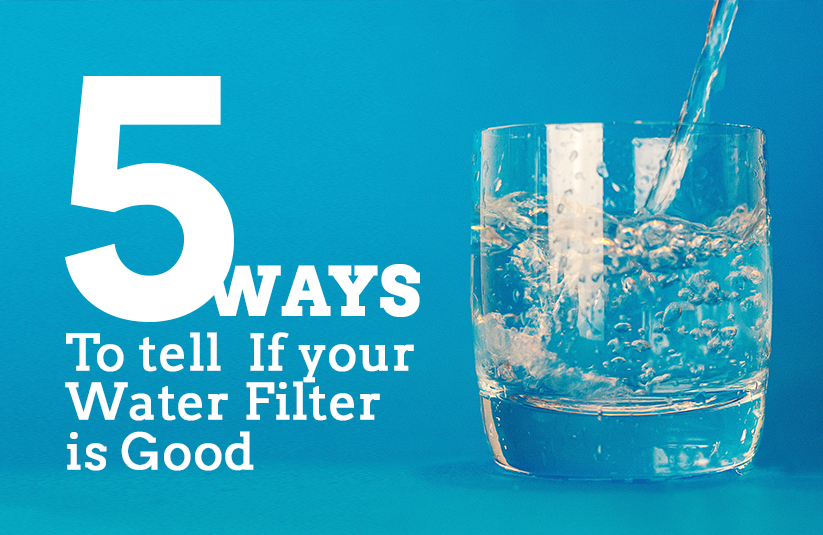The importance of drinking clean water can never be compromised. Water is the best medicine and you can never take it for granted nor the water purifiers that are used to ensure the good quality of the water. Choosing a good water filter for your needs is an art and can be very confusing at times. Below is a list of ways that will help you to tell if you have found a good water filter.
Killing Bacteria and Germs in Water
The primary attribute of clean and safe water is to be free from bacteria and other disease-causing germs. The germs and bacteria present in water can lead to many infections and especially the rate of infection of waterborne diseases in infants is very high. The most common waterborne diseases are cholera, dysentery, typhoid, polio and Guinea worm disease. You will be shocked to know that diarrhea ranks first in the deaths caused due to uncontaminated water, a good water filter should make the water free from contamination killing all the germs and bacteria making it safe for drinking.
Removing Harmful Salts and Retaining the Good Salts in Water
This is the ultimate purpose of an RO water purifier. We are all aware that water contains numerous salts dissolved in it. Some of these salts are essential to our body while some salts can prove to be lethal. The foremost aim of your water purifier is to remove such poisonous salts and making it the best water to drink. These salts if not treated or purified get accumulated in your body over time. Over time, these salts get accumulated in your body and act like slow poisons taking a toll on your body as you age. A good purifier should not only remove such harmful salts but also retain the good salts present in water. Lack of good salts and minerals will lead to calcium deficiency and the salts also play a vital role in the proper functioning of our body. The TDS(Total dissolved salts) value for safe drinking water should be less than 500 ppm. The purifier is equipped with a TDS filter to make sure only the harmful salts are removed and the good salts are retained in water.
What is a TDS Controller?
A TDS controller is a device used to control and regulate the TDS value of the output water that is used for drinking purpose. If the TDS value of your water is very less, you can install a TDS controller and increase the TDS value of the water. This makes sure that your body gets enough minerals salts making it the best water to drink. To check the TDS value of your water and to know about different methods of testing the purity of water and for a free consultation from our expert, please click here.
Removing the Turbidity of Water
Turbidity refers to the contamination in water such as mud and other suspended particles making it unsafe for drinking purpose. In extreme cases, the source water can even be yellowish in color indicating the presence of mud and other suspended particles. A good water filter should be capable of removing the turbidity of the water making it safe for drinking purpose. This is made possible by using carbon filters that suck the mud and other suspended impurities. This makes the water safe and fit for drinking purpose.
Maintenance and Operation Cost
A good water filter should be cost-effective. You cannot put your entire life savings in a water purifier. It is only fair to expect a good purifier to be economical to save you some money. The cost does not only include the price you pay for the purifier but also the operating and maintenance cost of the purifier. The operating and maintenance cost of RO purifiers can be quite high compared to other purifiers. RO purifiers run on electricity and waste a lot of water. You only have to opt for RO water purifier when it is necessary, that is when the TDS value is more than 500 ppm. The filtering membrane and other membranes and parts used in the water purifier should be changed periodically adding to the maintenance cost. The maintenance and operation cost can prove to be a huge burden in the long run if not planned properly.
To know more click here: https://aguaclan.com/2018/07/23/5-ways-to-tell-if-your-water-filter-is-good/


